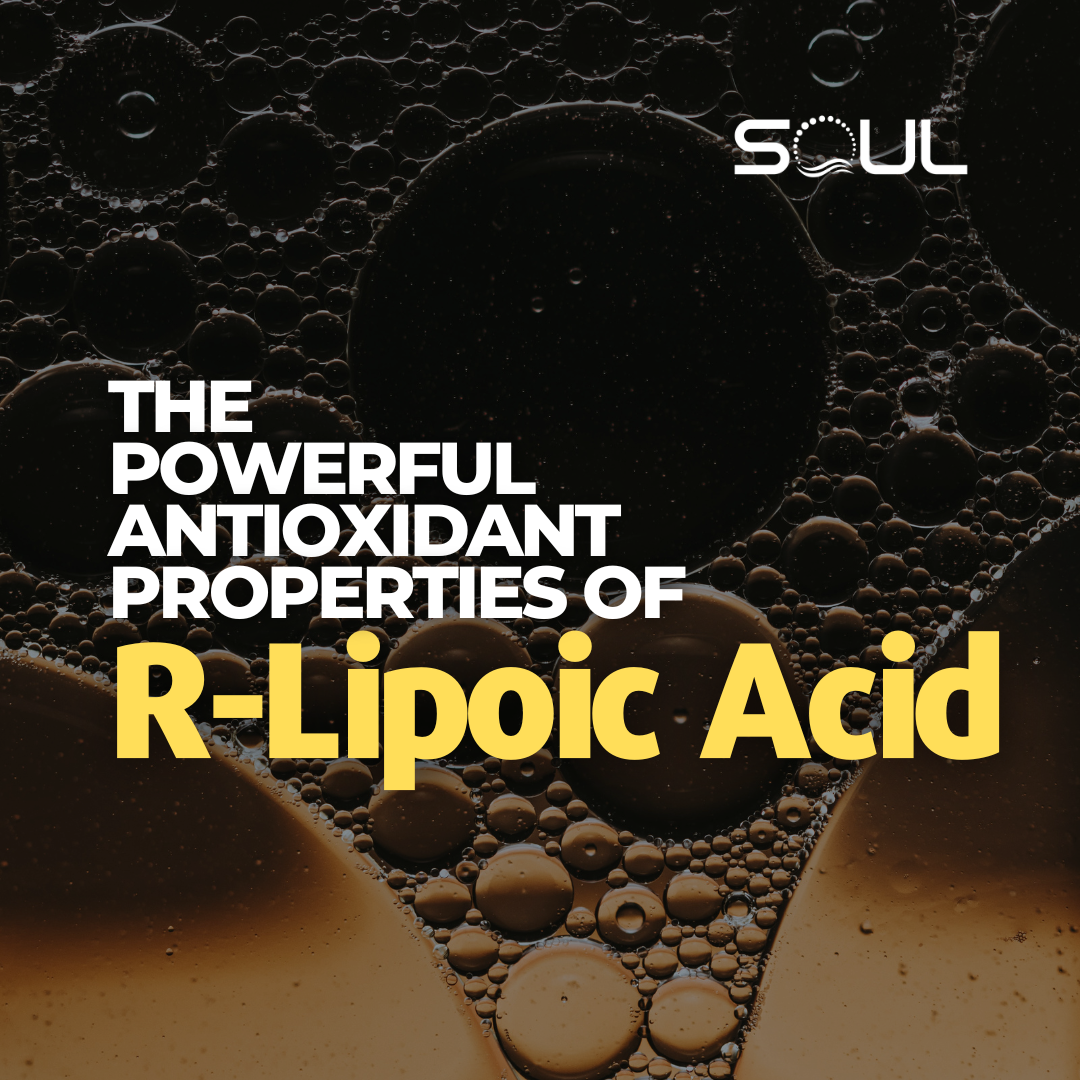R-Lipoic acid (RLA) is a naturally occurring compound that plays a crucial role in energy metabolism. It is a form of lipoic acid, which is a sulfur-containing fatty acid that acts as a cofactor for a number of enzymes involved in energy production. RLA is considered to be the biologically active form of lipoic acid and is found in small amounts in certain foods, such as spinach, broccoli, and yams.
One of the most exciting aspects of RLA is its powerful antioxidant properties. Antioxidants are compounds that neutralize harmful molecules known as free radicals, which can damage cells and contribute to the development of various diseases. Free radicals are naturally occurring byproducts of cellular metabolism, but they can also come from external sources such as pollution, UV radiation and smoking. Antioxidants work by neutralizing these free radicals, preventing them from causing damage to cells and DNA. RLA is particularly effective because it can recycle other antioxidants such as vitamin C and vitamin E, making them more effective.
In addition to its antioxidant properties, RLA has also been studied for its potential benefits in the management of diabetes, nerve damage, and other health conditions. Diabetes is a metabolic disorder characterized by high blood sugar levels, which is caused by the body's inability to produce or respond to insulin properly. RLA has been shown to improve insulin sensitivity, which is important for managing diabetes, by helping to lower blood sugar levels and increasing glucose uptake into cells. Additionally, RLA may have a beneficial effect on blood pressure and inflammation, which are two risk factors for the development of diabetes.
Another interesting aspect of RLA is that it can cross the blood-brain barrier, which makes it useful for the management of neurological conditions such as Alzheimer's disease. The blood-brain barrier is a protective barrier that prevents harmful substances from entering the brain, but it also makes it difficult for some beneficial compounds to reach the brain. RLA is able to cross this barrier, which allows it to have potential benefits in the management of neurological conditions. Studies have suggested that RLA may help to protect the brain from damage, and that it may improve cognitive function in people with Alzheimer's disease.
RLA has also been studied for its potential benefits in the management of other neurological conditions such as Multiple Sclerosis, and nerve damage from injury or diseases such as diabetic neuropathy. Studies have shown that RLA may help to protect nerve cells from damage, and may help to improve nerve function.
If you're interested in supplementing with RLA, it is typically taken in the range of 300-600mg per day, either in supplement form or as part of a multivitamin. It is important to note that more research is needed to fully understand the long-term safety and effectiveness of RLA supplements, and that people should consult with their doctor before taking any supplements. RLA supplements are generally considered safe, but it can interact with certain medications, such as blood thinners, so it's important to check with your healthcare provider before starting any supplement regimen.
In conclusion, R-Lipoic acid is a versatile and powerful antioxidant that has potential health benefits. It can be found in small amounts in certain foods, but if you're looking to supplement with it, it's important to consult with your doctor first. While more research is needed to fully understand its effects on the body and its potential uses in medical treatment, the potential benefits it has shown so far are promising.
These statements have not been evaluated by the Food and Drug Administration. This product is not intended to diagnose, treat, cure or prevent any disease.

